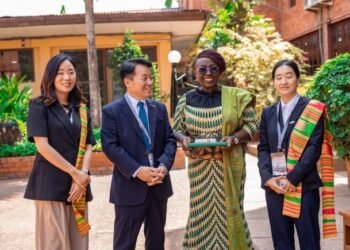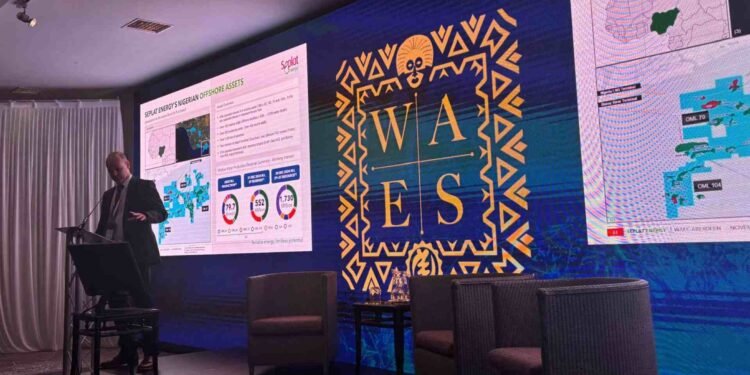The music industry in Ghana has long been a vibrant tapestry of cultural expression, rich rhythms, and diverse genres.
However, despite this rich musical heritage, the country’s music industry has yet to fully realize its potential on the global stage.
A significant factor contributing to this underachievement is the lack of world-class record labels that nurture talent, promote music effectively, and leverage international distribution channels.
Rex Omar has revealed that one of the main goals of the Blackstar Experience is to spark investment in Ghana’s creative economy.
The programme’s coordinator revealed that the initiative aims to establish globally competitive record labels in Ghana’s music industry.
“We’ve done our research and we have realised that the reason why Ghanaian artistes get to a certain level and are stuck is because we don’t have any well-resourced record label in this country, be it personnel or funding. Because you cannot release the single in Ghana, no matter how good the music is, and you spend 200,000 cedis in marketing, and another artiste releases a song and puts 200,000 dollars in the marketing, your music might be the best, but his music will blow. So then it means that we need to set up one or two well-resourced record labels that have what it takes to market Ghanaian artistes to that global [standard].”
Rex Omar
Ghana’s music industry is characterized by a plethora of talented artists who often struggle to find the right platforms to showcase their work.
Many musicians operate independently, relying on social media and localized performances to gain recognition. While this grassroots approach has its merits, it often limits artists’ exposure to wider audiences and hinders their ability to monetize their craft effectively.

Furthermore, the absence of robust record labels means that artists lack the necessary support in terms of marketing, distribution, and production quality. This gap has resulted in a fragmented industry where potential hits go unheard, and promising talents remain undiscovered.
Rex clarified that these record labels would not be state-run or publicly financed. Instead, the focus would be on mobilizing support from independent investors and companies. “We will facilitate bringing private investment to do that because if you say government, everything that belongs to the government belongs to everybody,” he divulged.
World-class record labels play a pivotal role in the development of a thriving music industry. They provide comprehensive support systems that include professional production facilities, marketing expertise, and access to global distribution networks.
By investing in local talent, these labels help elevate the quality of music produced in Ghana, ensuring that it meets international standards.
Additionally, record labels facilitate collaborations between Ghanaian artists and international stars, creating opportunities for cross-cultural exchange and expanding the reach of Ghanaian music.
Moreover, world-class record labels offer artists the financial backing needed to produce high-quality albums and music videos. This investment not only enhances the artistic output but also contributes to the overall growth of the music ecosystem in Ghana.
With better resources at their disposal, artists focus on their creativity, leading to innovative sounds that resonate with audiences worldwide.
Enhancing Opportunities for Artists with World-Class Record Labels

The establishment of world-class record labels in Ghana would also mean better career opportunities for local artists. These labels provide mentorship programs, workshops, and training sessions that equip artists with the necessary skills to navigate the complexities of the music industry.
By fostering a professional environment, record labels help artists develop their brand, manage their finances, and understand the nuances of contracts and negotiations.
Furthermore, a thriving record label scene would attract international attention and investment, positioning Ghana as a key player in the global music industry.
This influx of interest could lead to the creation of music festivals, talent showcases, and other events that celebrate Ghanaian music, further enhancing its visibility and appeal.
When asked how they plan to support already existing labels that need financial reinforcement, Rex Omar explained, “We will assess and see who has been in the system, their track record, how many artists they have been able to project, and based on that, it will be chosen.”
Launched on May 1, 2025, the Blackstar Experience is now the flagship initiative for Ghana’s tourism, culture, and creative arts sectors.
Ghanaian music has the potential to be a powerful cultural export, but this requires a strategic approach to promotion and distribution. World-class record labels serve as ambassadors for Ghanaian culture, introducing the world to the unique sounds and stories that characterize the nation’s music.

By leveraging digital platforms and international partnerships, these labels ensure that Ghanaian music reaches a global audience, fostering a greater appreciation for the country’s rich cultural heritage.
In addition, as Ghanaian music gains traction on the world stage, it inspires a new generation of artists and musicians, encouraging them to explore their cultural roots while pushing the boundaries of creativity.
This cultural renaissance leads to a renewed sense of pride among Ghanaians and contributes to the preservation of traditional music forms.
The push for world-class record labels in Ghana is not merely a call for better music production; it is an essential step towards creating a sustainable and thriving music industry that competes on a global scale.
By investing in local talent, enhancing opportunities for artists, and elevating Ghana’s cultural influence, these labels transform the music landscape in the country.
It is time for stakeholders—government, private investors, and the music community—to come together and champion the establishment of world-class record labels in Ghana.
Doing so will not only enrich the lives of countless artists but also ensure that Ghanaian music continues to resonate and inspire generations to come.






















